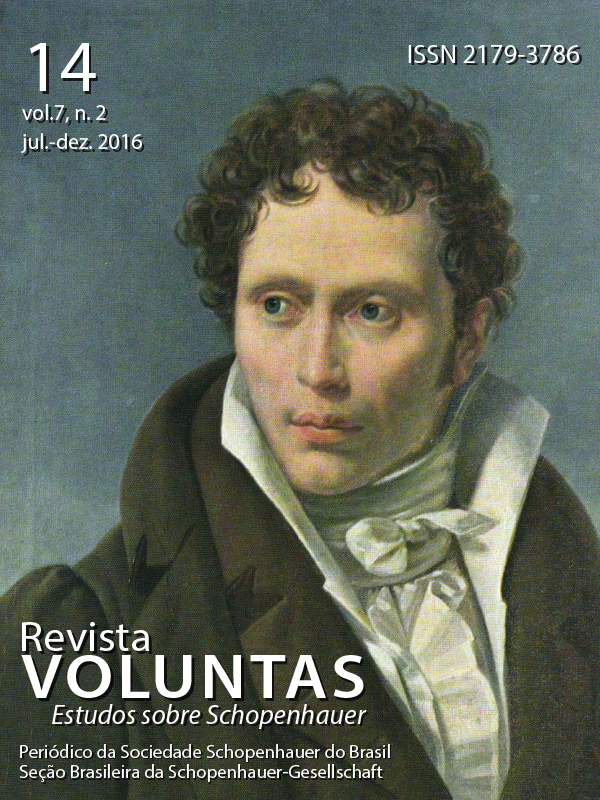The ways of denial of the will in Schopenhauer
DOI:
https://doi.org/10.5902/2179378633704Keywords:
Denial of the will, Compassion, SufferingAbstract
In this paper I analyze how is the transition from affirmation to the negation of the will in its two-way, the knowledge and appropriation of other people's suffering and the suffering radically sense. For this, I expose the compassionate acts as means of promoting the denial and I question whether there is a type of character that favors the emergence of the denial by the first route, while the second route makes possible the denial independent of the character individual expressed before that experience.Downloads
References
CACCIOLA, Maria Lúcia Mello e Oliveira. Schopenhauer e a questão do dogmatismo. São Paulo: Edusp, 1994.
SCHOPENHAUER, Arthur. O mundo como vontade e como representação. Tomo I. Tradução de Jair Barboza. São Paulo: Editora UNESP, 2005.
SCHOPENHAUER, Arthur. O mundo como vontade e representação. Tomo II. Vol. 1. Tradução de Eduardo Ribeiro da Fonseca. Curitiba: Ed. UFPR, 2014.
SCHOPENHAUER, Arthur. Sobre o fundamento da moral. Tradução de Maria Lúcia Mello Oliveira Cacciola. São Paulo: Martins Fontes, 2001.
SCHOPENHAUER, Arthur. Sobre a Ética. Tradução brasileira dos capítulos 8 a 15 de Parerga e Paralipomena. Tomo II. Flamarion Caldeira Ramos. São Paulo: Hedra, 2012.
Downloads
Published
How to Cite
Issue
Section
License
The submission of original manuscripts to this journal implies the transference, by the authors, of the copyrights for printed and digital publication. The copyrights of a published manuscript belong ultimately to the author, and only the copyright for its first publication is reserved to the journal. Authors may only use the same results in other publications explicitly indicating this journal as the medium of the original publication.
Licence
Attribution-NonCommercial-ShareAlike 4.0 International (CC BY-NC-SA 4.0) - This license lets others remix, tweak, and build upon your work non-commercially, as long as they credit you and license their new creations under the identical terms.






